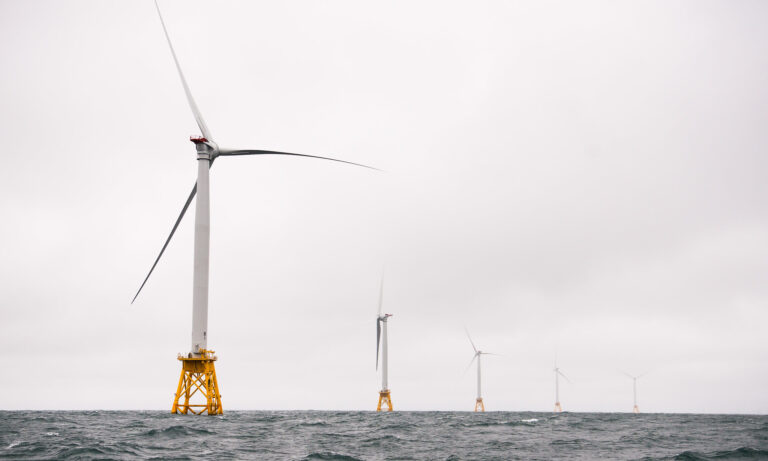
The rise of China as a global economic power is increasingly seen as a threat to American and European interests. According to Washington, China is disrupting global trade by demanding to be treated like a developing country, though it is the second-largest economy in the world. China is also undermining the global economy by maintaining an opaque political system intertwined with an opaque internal market while taking advantage of the open political systems and open markets of the West. By now, the US has clearly decided to pursue a policy of ‘decoupling’ from China.
Hungary’s Sonderweg
It is during this period of global economic recession and soaring geopolitical tension between China and the West that Hungary decided on April 24 to sign a loan deal for a new rail connection between the Serbian-Hungarian border and the outskirts of Budapest with the sole purpose of transporting Chinese goods from the Aegean Sea to Europe. It is not the first time that Budapest has supported Chinese interests against those of Europe: in 2016 Hungary blocked other EU countries from adopting a declaration telling China it should abide by a 2013 ruling on the South China Sea made by a UNCLOS arbitral tribunal, which ruled that there was no legal basis for Beijing to claim historic rights to resources within its nine-dash line, covering nearly 90% of the maritime area.
According to the plans, the railway will be modernized, and the single-track line will be turned into a double-track line. The railway line is 350 kilometers long, with 166 kilometers of track in Hungary and 184 kilometers in Serbia. The Hungarian part is to be built with the help of a 20-year Chinese loan, which will cover 85% of the cost. Finance minister Mihaly Varga argued at the signing ceremony that the €2.3 billion project would help Budapest to become the European customs center for Chinese products.
The construction project is being pushed through while Beijing’s Belt and Road Initiative (BRI) megaproject has become stuck worldwide due to the COVID-19 epidemic and the deepening economic slump. Moreover, the new railway would be built in an atmosphere of increasingly widespread de-globalization, when Western countries are rethinking their supply chains and pulling back from their reliance on China as the major source of cheap goods. According to a new global poll, half of the companies in the world want to radically reshape their supply chains–and 36% have already made steps in this regard.
Classified Details
Financial details of the railway project have been classified for 10 years (the feasibility study being classified even earlier)–yet the governing Fidesz supermajority gladly voted for it. No wonder that the opposition did not support the law in Parliament. They argued during the debate in April that the project only serves the interests of China, as it will build precedence for future European railway projects and gain a new route to flood European markets with cheap products. On the other hand, there are no guarantees that the development will not become a “bottomless pit for the money of Hungarian taxpayers”.
The government argues that the investment is of the “highest public interest”. Even so, it says the release of any details of the treaty “could endanger the enforcement of Hungary’s foreign policy and foreign trade interests”.
The railway line is the single most expensive infrastructure project ever undertaken by Hungary, even as the country has spent billions of euros of EU structural and cohesion funds on public works in recent years. And while the costs are extraordinary, the potential benefits appear to be meager: traffic between Budapest and Belgrade is scarce, the modernized rail route will have no connections to European mainlines, and the government’s publicly stated reasons for the modernization do not make economic sense. Hungarian economists figured that perhaps after 2400 years (!) the line might be profitable.
Despite all the secrecy, it is already known that the Chinese side has not given any guarantee on the amount of goods to be delivered on the new line. The only beneficiary of the deal seems to be Lorinc Meszaros, the frontman of Premier Orbán. The EU launched an infringement procedure against Budapest in 2016 for not complying with European procurement laws. When the government finally agreed to announce a tender, few were surprised when Meszaros, a childhood friend of Orban who rose from being a lowly gas fitter to a tycoon, won the contract, along with two Chinese companies. Indeed, Meszaros’s company—RM International—is expected to do 50 percent of the job. This company has likely been created specifically for the purpose of the Budapest-Belgrade project because it had zero income as late as 2017.
Meszaros owns hundreds of companies and last year topped Forbes’ Hungarian rich list. The Hungarian investigative journalism outlet Atlatszo says public procurement documents show that companies held by Meszaros or his family won tenders to the tune of €1.5 billion between 2010 and 2017, with 83% of the contracts on EU-funded projects.
State Capture in Action
Experts say the question to ask about any infrastructure investment is who benefits and who foots the bill. In this case, they argue it is China that will benefit and Hungarian taxpayers who will pay. There is a consensus in Hungarian public opinion that this opaque project is basically a taxpayer gift to China. Indeed, Orban’s decision to get a loan from Beijing when the EU is quite willing to offer money for the development of Pan-European corridors can be explained by the unprofitability of the project.
“Businesswise, nobody will scrutinize the deal, as would happen with EU funds. Here, there is no need for transparency, the government can distribute public money freely,”—says Peter Balazs, director of the Centre of Neighbourhood Studies at the Central European University (CEU) and Hungary’s former European Commissioner.
Last year’s Transparency International report revealed that Hungary had become the second most corrupt state in the EU. “Corruption has become part of the system, not a side effect of it”, according to the report. It also revealed that 20% of EU-funded public procurement money went to Meszaros’s companies.
In June 2019, the Hungarian government once again blocked the publication of the Council of Europe’s (CoE) annual report (for 2018) on corruption. Indeed, the European Anti-Fraud Office (OLAF) carried out more investigations into Hungarian EU funding issues in 2018 than in any other EU member state. OLAF recommended that Hungary should pay back 3.84% of the EU funds that Budapest handed out across the country in 2014-2018. Prosecutor general Peter Polt, a former Fidesz candidate, is central to the system, critics say. His job is “making sure that Orban’s criminal activities will never see the light of day”, no matter how blatant the cases become, according to Hungarian Spectrum, a blog run by Eva S. Balogh, a former Eastern European history academic at Yale University.
Overinflated Chinese Projects
With the signs of state capture blinking deep red, Hungary has to be careful about this kind of Chinese white elephant project in a time of a deepening global recession. As a recent study by Benn Steil and Benjamin Della Rocca of the Council on Foreign Relations has revealed, China charges substantial interest on its loans. Although Beijing calls its rates “preferential”, some BRI projects, particularly large ones, carry interest rates more than three percentage points above Chinese banks’ own cost of capital—or roughly four to six percent. Since 2013, China has provided nearly half of all new loans to nations considered to be at a high risk of default.
Although commentators have long likened the BRI to a Marshall Plan for developing nations, the two initiatives could not be more different in approach. The scale of the financing may be comparable (The U.S. Marshall aid was worth about $145 billion in current dollars), but the similarities end there. Marshall aid was all grants, whereas BRI funding is nearly all debt. That debt is now smothering developing nations as they struggle to emerge from a devastating pandemic. Indeed, on June 7, China had to announce the suspension of debt repayment for 77 developing countries and regions. Meanwhile, Hungary plans to issue €4 billion of foreign currency bonds this year to help finance an increased budget deficit, tapping international markets for the first time since 2018 as grapples with the economic fallout from the coronavirus crisis. The country had originally planned to issue up to €1 billion of foreign currency debt, focusing on domestic retail investors and Japanese yen and Chinese yuan markets. Hungary’s economy will be hit hard this year, not the least because the export-dependent automotive industry’s share of total manufacturing output is over 28%. Indeed, the last thing the country’s economy needs right now is to finance a Chinese white elephant.


